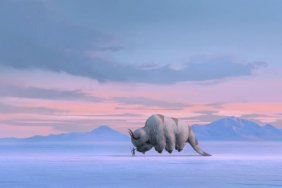It is again time to raise some hackles, disabuse some notions, piss people off, and not be the least bit apologetic about it with the latest installment of CraveOnline‘s Trolling. This is a series devoted specifically to challenging the pop culture status quo, and if it rubs you the wrong way, then it means it’s doing it’s job. I welcome irate comments, insults, death threats, and blind misspelled hatred in the comments section below. Don’t hold back.
There have been a few unkind words spoken about director M. Night Shyamalan over the years, and he is often considered by many to be one of the worst working directors currently obtaining regular employment from major film studios. His films The Sixth Sense, Unbreakable, and Signs were all critical and commercial darlings when they came out in 1999, 2000, and 2002 respectively, but ever since The Village in 2004, Shyamalan has been slowly sauntering downward in reputation to become the object of unreasonable scorn by the filmgoing populace at large. He is now so unpopular, that his name is no longer advertised on his movies (the ads for this year’s After Earth never touted him as the director).
Shyamalan’s most hated film – which is debatable; The Happening and Lady in the Water are certainly not well-regarded – was still probably 2010’s The Last Airbender, his infamous live-action adaptation of an American anime-style TV show called “Avatar: The Last Airbender.” The TV show, which I have never seen, has a small but passionate cult following, and some have gone so far as to call it one of the best TV shows of all time.
Why is the movie version hated so much? I posit the following: M. Night Shyamalan’s The Last Airbender RULES. Here are a few reasons as to why:
Is the acting in the film boring? Yes. Does the story move too quickly? Yes. Those are legitimate filmmaking complaints about the film. Is it significant that they changed the color of the characters’ skins? Not really. What The Last Airbender did was distil a large story and a fascinating universe into a fascinating and visually textured film. The myth lived on.
Until next week, let the hate mail flow.
Witney Seibold is a featured contributor on the CraveOnline Film Channel, co-host of The B-Movies Podcast and co-star of The Trailer Hitch. You can read his weekly articles Trolling, Free Film School and The Series Project, and follow him on “Twitter” at @WitneySeibold, where he is slowly losing his mind. If you want to buy him a gift (and I know you do), you can visit his Amazon Wish List.
The Last Airbender RULES
-
The Design Was Really Cool

A problem with making a fantasy film in today's fantasy-saturated marketplace is coming up with a look that is actually unique. Filmmakers are constantly bending over backwards to create a new aesthetic that hasn't been done before with various levels of success. Some can create a new look (James Cameron's Avatar, not to be confused with this film, was successful at a very particular aesthetic), while others tend to fall back on known aesthetics (Peter Jackson's Lord of the Rings movies are based directly on decades of airbrushed poster art), making for something that is not so original and perhaps not that interesting to look at.
The Last Airbender contains costumes, sets, and ideas that I haven't seen in a movie before. I like the big metal ship that is ruled over by The Fire Nation. I like the small switchblade glider that Aang uses to fly around. I like the big bizarre totoro-like flying oxen that the lead characters travel around on. This was a film that took the more stylized visual element of an animated TV show, and made a palpable and good-looking live action world.
-
The Depiction of Superpowers Was Unique

In most superhero movies, the superpowered beings can call upon their superpowers by merely lifting a hand. How many superheroes merely lift their fist toward their foe, only to effortlessly blast them away with some brightly-colored energy beam? Wolverine just extends his claws by thinking about it. Cyclops, from the X-Men universe, has lasers firing from his eyes at all times!
The Last Airbender, by contrast, ties superpower into much more elaborate bodily movements. In order to do something as simple as lift a rock in this universe, an Earth Bender must know a series of specially coded Tai Chi gestures. In short, all superpowers in this film connect to both the mind and the body. Its a combination of casting a spell, martial arts, and superpowered fights. This superpowered dance fighting is actually really cool, and makes for fights that are less heavily edited, and more elaborate. This is original and striking.
-
Shyamalan Has Creative Integrity

Many middle-of-the-road film directors will look at a movie script and ask themselves “What will definitely work here?” Shyamalan doesn't bother himself with what will work, and asks more daring creative questions about what would be a cool idea. Any average director could have taken the animated series of The Last Airbender, and turned it into the usual action shlock that we see dozens of times, over and over again, every dang summer.
Shyamalan would rather do something new. With The Last Airbender, he looked at an oddball TV series, and had the daunting task of squeezing a huge amount of mythology and exposition into a relatively short amount of time. The myths sped by in many scenes, but the hastiness was tempered by interesting sets, fun effects, and a really cool design. You have to admire any director that bothers to stick by his creative guns, and try to give his own voice to something. I'd rather that than a limp action-packed retread of the usual screenwriting 101 crap.
-
“It Was Different from the Show” is Not a Valid Argument

Many complain that Shyamalan's creative departures from the show was what made the movie bad. They loved the show, and were outraged – incensed! – that the film did not have some of the same details as the show. The races were changed, for one (the Inuit stand-ins were turned into white people, the Chinese stand-ins were turned into Indians). The pronunciation of some of the characters' names were altered as well; in the show “Aang” is pronounced with a long “A,” while in the movie it rhymes with “strong.” These alterations pissed off many purists and fans, and they are often cited as reasons as to why The Last Airbender is a bad film.
I've been saying this for years now: Fealty to the source material is not a virtue unto itself. Films operate on their own idiom, and cannot be expected to be exactly the same as their source material. If you feel the film fails because of some barely perceptible differentiation from something you previously saw (and, mind you, may not have been seen by the bulk of the film's audience), then you have fallen into the trap of pretense. You have become a pretentious filmgoer. The Last Airbender film is striking on its own artistic merits. Because you liked the show better doesn't mean the film failed.
-
This is What You're Constantly Asking For

There is a popular perception of certain big-budget Hollywood feature films that persists constantly throughout the years, and I'm specifically referring to big-budget Hollywood feature films that are based on a TV show or comic book or video game. Many audiences assume that a big-budget feature film – and the subsequent financial success thereof – will somehow lend credence the thing being adapted. If a mainstream audience can see a film version of “Avatar: The Last Airbender,” and fall in love with it, then fans of the show can rest easy that “mainstream audiences” (whatever that means) will eventually be led to their object of affection. They don't just want to see live-action actors in their favorite hero's costumes, but are seeking validation from millions of others. You love the show, then you want a movie. If you like the movie, you want a sequel.
I ask this: why does a movie have to be made to improve your favorite show/video game/comic book? What does a movie do to the original to improve it? At the end of the day a movie – if it's good or bad – does nothing to your favorite show. It may alter the popular perception of it for a week or two, but the show does not change. Admit it: Because The Last Airbender was perceived to be so bad, you are now afraid that viewers of the movie are going to look down on your show as an extension of the movie. Or are you afraid that The Last Airbender revealed a new dimension to your favorite show that you dislike? This shouldn't worry you. The film is not the show/game/comic. It is its own thing. In this case, it's just fine.








